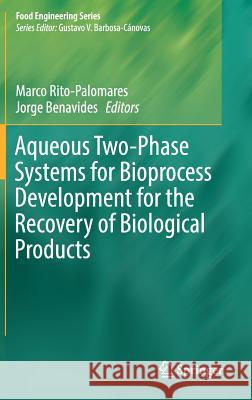Aqueous Two-Phase Systems for Bioprocess Development for the Recovery of Biological Products » książka
topmenu
Aqueous Two-Phase Systems for Bioprocess Development for the Recovery of Biological Products
ISBN-13: 9783319593081 / Angielski / Twarda / 2017 / 191 str.
Kategorie:
Kategorie BISAC:
Wydawca:
Springer
Seria wydawnicza:
Język:
Angielski
ISBN-13:
9783319593081
Rok wydania:
2017
Wydanie:
2017
Numer serii:
000156611
Ilość stron:
191
Waga:
0.46 kg
Wymiary:
23.39 x 15.6 x 1.27
Oprawa:
Twarda
Wolumenów:
01
Dodatkowe informacje:
Wydanie ilustrowane











